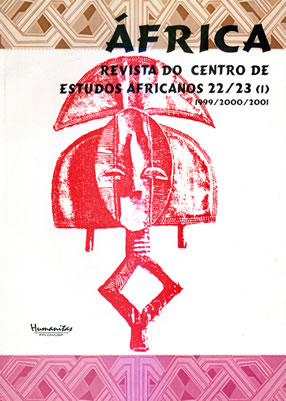La identidad africana: etnia, nación y estado
DOI:
https://doi.org/10.11606/issn.2526-303X.v0i22-23p191-208Keywords:
ethnicity, identity, globalization, Africa.Abstract
Starting from a dynamic conception of the identity like phenomenom that it is built and that becomes the social interaction, this work refers in the first place, to the content and reach of the ethnos concept. Then, the historical analysis of the ethnicity shows that the identity has not been defined by the social actors but also for external actors. This way, the action of the colonial administrations as regards definition and territorial grouping of ethnic groups gave origin, frequently, to new identities. Keeping in mind the ambiguous character of the concept of identity, in third place, it analyses the creation of national identities in the idependent period and, specially, the process of construction of the national idententity as foundation to the State. Lastly, in the context of the globalization, the present time of the ethnics rivalries, they seem to point out the continuity of the colonial administration of the ethnic questions in the independent period. In fact, the etnicismo that was part of the European politicians to associate the local powers to the colonial company is present in the competition political current low democratic regimens. If the identity is a social construction based on the production of the difference, it can be thought that the effect of the globalization about the cultural identities will be guided rather toward the recreation of new identities that to the formation an identity planetary uniform based on the dominant culture.Downloads
Download data is not yet available.
Downloads
Published
2004-12-09
Issue
Section
Artigos
License
A reprodução de qualquer dado, mesmo em resumo, de matéria contida nesta publicação, só será permitida com a citação do nome, número e o ano desta revista.How to Cite
La identidad africana: etnia, nación y estado. África, [S. l.], n. 22-23, p. 191–208, 2004. DOI: 10.11606/issn.2526-303X.v0i22-23p191-208. Disponível em: https://www.journals.usp.br/africa/article/view/74728.. Acesso em: 20 may. 2024.





